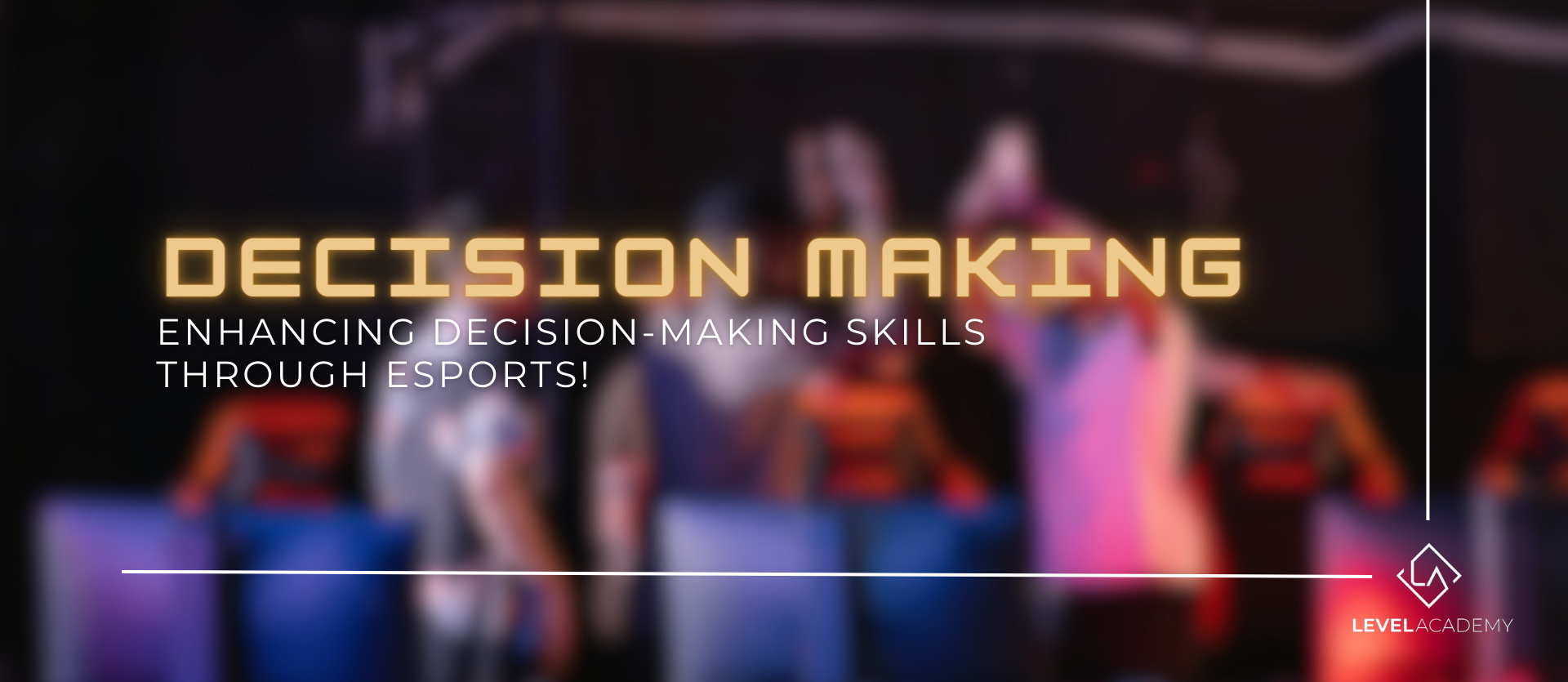
Unlock Your Decision-Making Skills To Achieve Victory
In the fast-paced and competitive world of esports, split-second decisions can determine the outcome of a match. As a result, esports provides a unique opportunity to enhance decision-making skills that are transferable to various aspects of life. Let’s explore how participating in esports can help you develop and refine your decision-making abilities.
1️⃣ Make Decisions based on Risks and Rewards in High-Pressure Gaming Scenarios!
Esports puts players in high-pressure gaming scenarios where they must assess risks and rewards to make informed decisions. Analysing the situation, considering potential outcomes, and evaluating the risks involved are essential steps in decision-making. In esports, players constantly face situations where they need to decide whether to engage in a fight, retreat, or pursue an objective. As a matter of fact, by practising this skill in esports, individuals develop the ability to weigh the pros and cons, evaluate potential consequences, and make calculated decisions. These decision-making abilities can be applied to real-life scenarios, enabling individuals to navigate challenges and make informed choices.
2️⃣ Decision-Making Skills Can Turn the Tide of a Match!
Esports is known for its fast-paced gameplay, where split-second decisions can have a significant impact on the outcome of a match. Players must quickly analyse the situation, process information, and make swift choices that can turn the tide in their favour. This level of decision-making demands sharp reflexes, a profound grasp of game mechanics, and quick thinking. By participating in esports, individuals sharpen their cognitive abilities, develop mental agility, and learn to trust their instincts. These skills transcend gaming and can be applied in various time-sensitive situations, such as time-critical decision-making at work.
3️⃣ Learn from Mistakes and Continuously Refine Your Decision-Making Abilities
In esports, every decision made during a match has an immediate impact. It is through this feedback loop that players can learn from their mistakes and continuously refine their decision-making abilities. When players face a negative outcome, they should analyze their decisions, find areas to improve, and adapt their strategy. This iterative process of learning from mistakes fosters a growth mindset, adaptability, and a willingness to experiment with different strategies. Embracing this mindset in esports translates into real-life situations, where individuals can learn from failures, adapt their approach, and strive for better outcomes.
Moreover, esports provides an environment where individuals can learn to collaborate and make decisions as a team. Effective teamwork in esports requires players to communicate and align their decision-making processes with their teammates. This experience enhances collaboration skills, the ability to consider multiple perspectives, and the capacity to make decisions with the overall team strategy. These skills are invaluable in group settings, such as work projects or community initiatives, where collective decision-making is crucial.
Conclusion
Esports offers a unique platform to enhance decision-making skills. By assessing risks and rewards, making split-second choices, and learning from mistakes, individuals can develop and refine their abilities. These skills are highly transferable, enabling individuals to navigate situations, make informed choices, and adapt their approach to achieve desirable outcomes. So, whether you’re a casual gamer or aspire to be a professional esports player, embrace the opportunities that esports provide to level up your decision-making skills.
#TransferableSkills #DecisionMaking #EsportsMindset
0 comments